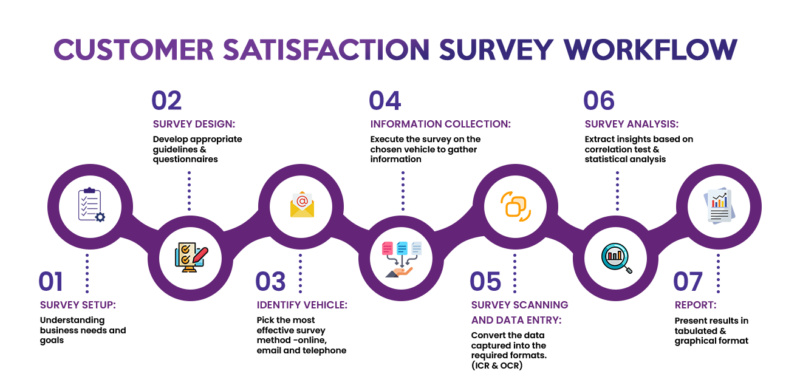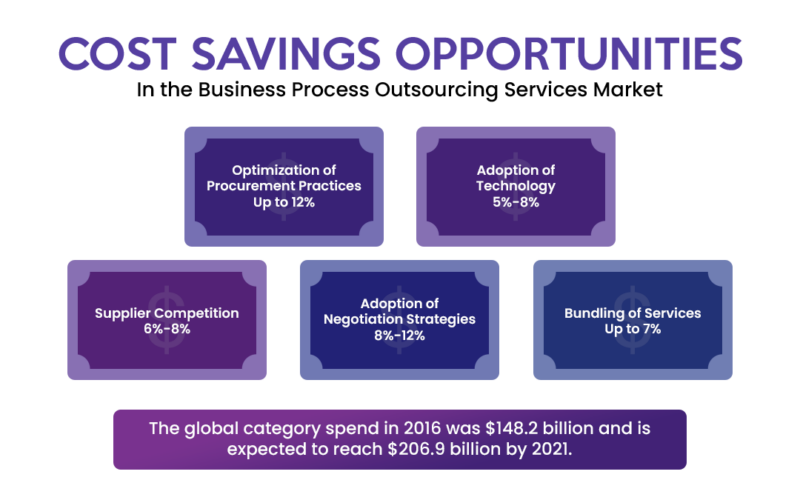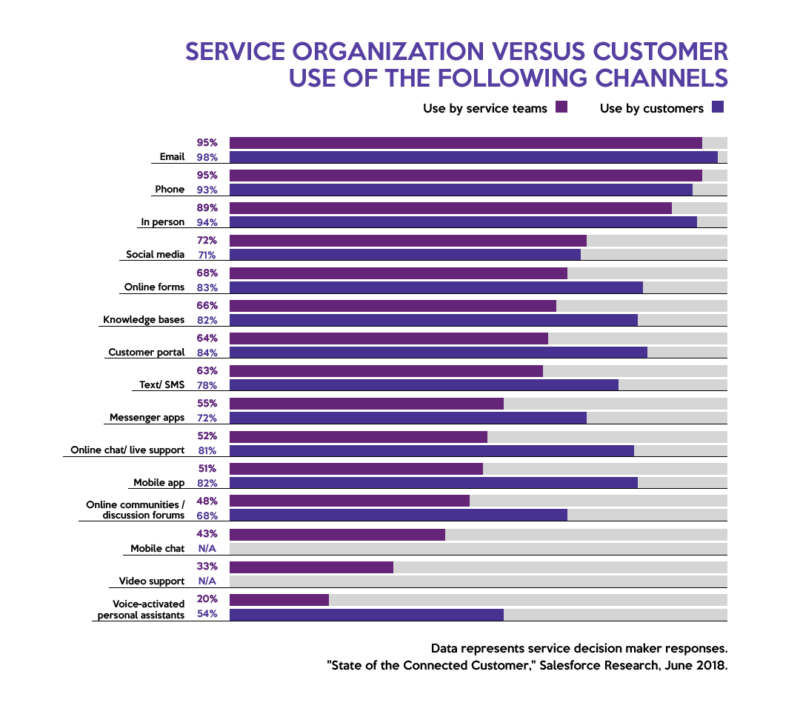Outsourcing customer service has become a strategic imperative for many growing companies looking to improve their operations while reducing costs. According to ChatDesk, In 2020, over 40% of customers stopped doing business with a brand due to poor customer service, and now we’re going to talk about how you can avoid that and many more as this article discusses the benefits, steps, factors to consider, and potential challenges when outsourcing customer service.
Benefits of Outsourcing Customer Service
Cost Savings
When companies outsource client support, one of the most noticeable advantages is the substantial cost savings. Maintaining an in-house customer service department involves many expenses, from salaries and benefits for customer service staff to infrastructure costs such as leasing or owning physical call center spaces, utilities, equipment, and technology. Moreover, there’s the added expense of training new customers and employees and continually upskilling the existing team members.
These costs can be substantially reduced by partnering with an outsourcing company with a dedicated and trained remote customer service team. The outsourcing partner absorbs these overheads, translating into direct cost savings for your business. Besides, a business can tap into the scalability offered by the outsourcing center services partner, increasing or decreasing the customer service team size per the business needs without worrying about hiring or firing employees.
Improved Customer Satisfaction
Another essential benefit of outsourcing customer service lies in the potential for improved customer satisfaction. Customer service outsourcing companies specialize in delivering excellent customer service. Their customer service teams are trained professionals who can handle various customer requests, from technical inquiries to billing issues, proficiently and effectively.
These professional customer service representatives are skilled at maintaining an upbeat demeanor, even when handling challenging calls or dealing with frustrated customers, ensuring that every interaction is managed optimally. Their proficiency leads to faster resolution times, a critical factor in customer satisfaction.
Moreover, outsourcing companies can provide round-the-clock customer service, which means customers can receive support whenever needed, regardless of their location or time zone. 24/7 availability increases customer satisfaction and enhances your brand’s reputation and loyalty. Furthermore, customer support surveys can also help you guarantee that your outsourced agent is on the same page about how you want your business to satisfy your customers.

Access to a Larger Pool of Talent
Customer service outsourcing gives businesses access to a more extensive and diverse talent pool. When you limit your hiring to a specific geographical area, your talent pool is inevitably smaller. By outsourcing, you break these geographical barriers and can access skilled professionals worldwide.
This geographical diversity can also bring cultural diversity, leading to a more varied and comprehensive customer service approach. Different agents bring unique problem-solving perspectives based on their cultural backgrounds, leading to innovative solutions that enhance the customer experience. This diversity can also cater to customer demands from a more diverse customer base, providing service in multiple languages, which could be a significant advantage in today’s globalized market.
Improved efficiency
Efficiency is another critical area where businesses can benefit from outsourcing customer service. By delegating customer service to an external company, businesses can free up their internal teams to focus on core competencies and strategic business functions, increasing productivity and efficiency.
An outsourcing partner with a dedicated team can handle the fluctuations in call volumes, repetitive support requests, and customer inquiries more efficiently. Their experience and specialized skills can lead to call resolution times faster, reducing customers’ time waiting for assistance.
An outsourced call center service will also have the resources to scale up or down quickly based on your business needs. For example, during peak season, when the number of customer inquiries might surge, the outsourcing partner can swiftly increase their staff to handle the increased load, maintaining service quality and efficiency.
Steps for Outsourcing Customer Service Effectively
Define your customer service needs
Before considering how to outsource client support, it’s essential to have a comprehensive understanding of your specific customer support needs. The fundamental considerations include the volume of customer service inquiries, the nature of customer requests, and the requisite level of support coverage necessary to satisfy your customer base.
Beyond the sheer number of phone calls and customer inquiries, assessing your broader customer service objectives is vital. Are you looking to enhance customer retention, minimize response times, or provide multilingual support? By identifying these needs, you are setting the stage for selecting the perfect customer service outsourcing company that can meet and exceed your unique requirements.
Research outsourcing options
In today’s globally connected world, there is a wide array of outsourcing companies; thus, thorough research is crucial. The reputation and experience of potential customer support outsourcing partners should be scrutinized meticulously. It’s beneficial to find customer service outsourcing companies with amassed experience in your industry or with businesses of a similar size. Reviews, case studies, and previous client experiences are all valuable sources of information.
The geographical location of outsourcing your customer service outsourcing partner also plays a significant role. While many businesses have been attracted by the cost savings of outsourcing customer service to offshore locations, the impact of time differences and cultural compatibility must be considered. For instance, if your customer base primarily speaks English, it’s advantageous to prioritize customer service outsourcing companies in countries with high English proficiency.
Moreover, your chosen outsourcing partner must be at the forefront of technology for customer support services, whether for their call center operations or online chat support. This is especially relevant if your customer support goals include integrating advanced solutions such as AI technology into your operations.
Develop a clear communication plan
Once an outsourcing partner has been chosen, developing a transparent and efficient communication plan is paramount. The outsourced customer service agents must receive training sessions focusing on your company’s unique brand voice, products, or services. This additional layer of training, integrated with the standard training provided by the outsourcing customer service company, ensures the agents are well-equipped to represent your brand effectively.
Establishing regular feedback loops is another critical aspect of a successful communication plan. Mechanisms such as weekly meetings, performance reports, or customer satisfaction surveys should be implemented. These ensure that the outsourcing partner’s service quality can be continuously monitored and adjusted.
In addition, clear procedures for managing complex customer service issues or complaints that require escalation back to your in-house team should be implemented. This step ensures a seamless customer experience, even when unexpected situations arise.
Implement and monitor the outsourcing process
The implementation phase of outsourcing customer service is still ongoing. Continuous monitoring of outsourced customer support operations is crucial. This includes data analysis to identify patterns in customer preferences and behaviors. For example, if data shows that your customers prefer phone calls to email interactions, this can influence the allocation of your customer service resources.
Quality assurance also plays a vital role in the process. Regular assessments of customer interactions help ensure that the outsourced customer service agents uphold your company’s quality standards and consistently maintain your brand voice.
Lastly, the outsourced team’s training should evolve alongside your company. As new products, services, or company policies are introduced, it’s essential that these changes are communicated, and the necessary training is provided to the outsourced team.
Factors to Consider When Outsourcing Customer Service
Quality of Services
When you decide to outsource customer service, a crucial factor to consider is the quality of services the outsourcing partner offers. The last thing you want is poor customer service tarnishing your brand’s reputation. Review the outsourcing company’s previous work, consult their past clients, or arrange a pilot project to assess their capabilities.
It’s about more than just handling customer requests effectively; the outsourcing partner must be able to enhance the customer experience as a whole. An outsourced support team or excellent customer service representative can transform simple customer interaction into an opportunity for building customer loyalty. To ensure this, your outsourced team members must deliver professional customer service while consistently maintaining your brand voice.
Availability and accessibility
Another critical factor is the availability and accessibility of the outsourced support team. Your customers should receive support whenever they need it, whether in the middle of the night or during a holiday. Many customer service outsourcing companies offer 24/7 support coverage, so your customers can always get the help they need.
Moreover, accessibility isn’t just about time; it’s also about the modes of communication. Customers today expect multiple touchpoints. An outsourcing partner providing support via phone calls, emails, social media, and live chats can cater to varying customer preferences, enhancing their satisfaction.
Cost
Cost savings is one of the most compelling advantages of outsourcing customer service. It’s cost-effective as you don’t need to hire and train an in-house team, set up a physical call center, or purchase high-end support tools.
However, it’s about more than finding the cheapest service provider. The lowest cost might come with compromises on service quality, data security, or customer satisfaction. Hence, finding an outsourcing partner that offers high-quality service at a price that aligns with your budget is crucial. It’s essential to have your legal team review the contract details to ensure transparency and mitigate hidden costs.

Cultural Compatibility
Cultural compatibility is often overlooked but can significantly influence the customer experience. When your customer service function is handed to an outsourced team from a different country, there might be a gap in understanding cultural nuances, leading to potential miscommunications or a lack of personal touch in customer conversations.
To overcome this, choose an outsourcing partner who understands your customer demographics well. If you cater to multiple markets, look for outsourcing partners with multilingual customer support agents. A customer service representative who speaks the customer’s language and understands their culture can add a personal touch to customer interactions, improving the customer experience.
Tips for Successful Outsourcing
Foster Open and Clear Communication
The first step towards successful customer service outsourcing is to foster open and transparent communication with your outsourcing partner. This starts with clearly understanding your expectations, processes, brand voice, and customer insights. Sharing as much information as possible about your business can help your outsourced team members to provide support that aligns with your company’s values and objectives.
Regular meetings and open communication channels allow you to convey any changes in your services or policies promptly. In addition, setting clear KPIs and having frequent reviews can help ensure the outsourcing partner meets your standards and objectives.
Open communication also extends to handling any problems that might arise. Addressing these promptly and directly with your outsourcing partner helps to maintain a positive relationship and ensures a high standard of customer service.
Maintain a consistent brand voice
Maintaining a consistent brand voice across all customer interactions, whether handled by your internal or outsourced customer support team, is crucial in providing a seamless customer experience. The customer service representative must communicate in a way that aligns with your brand’s image, tone, and values. This consistency reinforces your brand identity and builds trust among customers.
To achieve this, provide dedicated agents of your outsourcing partner with a comprehensive brand guideline. It should cover the tone and language and how to handle various customer service scenarios. Providing training sessions or workshops to outsourced customer service agents can also effectively imbibe your brand voice.
Use Technology to Your Advantage
Embracing technology is another way to make your customer service outsourcing successful. Outsourcing companies offer various technologies, from advanced ticketing systems to AI-powered chatbots. These can handle repetitive support requests, freeing agents to focus on complex customer interactions.
Technologies like CRM systems can track every customer interaction, enabling your shared outsourced customer service team to provide personalized and prompt service. Utilizing these tools also allows data-driven decision-making. Regular customer data analysis can provide valuable insights into customer behavior, preferences, and issues, which can further inform your customer service strategies.
In addition, consider technologies that facilitate the secure sharing of sensitive customer data with your outsourcing partner. Security measures such as data encryption, secure access, and anonymization are critical to maintaining customer trust and considering platforms used for your customer support service, as many companies don’t utilize some platforms as much as they should.

Continuously evaluate and improve the outsourcing process
Outsourcing customer support is different than a set-it-and-forget-it process. Continuous evaluation and improvements are crucial to its success. This involves regular performance monitoring, feedback from customers’ external support reps, and analysis of customer service data.
Set measurable KPIs based on your customer service goals, and monitor them regularly. This can include metrics like response time, customer satisfaction score, or first contact resolution rate. Periodically reviewing these KPIs with your outsourcing partner can ensure you’re on track to meet your goals.
Remember to consider the customer’s perspective as well. Customer feedback is a treasure trove of insights that can help improve your customer support services. Implement a system to gather and analyze customer feedback and share it with your outsourcing partner.
Overcoming Outsourcing Challenges
Overcoming Language Barriers
Language barriers can pose significant challenges when outsourcing customer support, especially when outsourcing services to a country where English is not the first language. Miscommunication can lead to misunderstandings, customer dissatisfaction, and a tarnished brand reputation.
To overcome this, it’s crucial to partner with a top customer support agent or service outsourcing company that offers multilingual support or specializes in providing services to English-speaking customers. Also, investing in language and cultural training for your outsourced customer service agents can be highly beneficial. Today’s technology also provides tools and platforms to facilitate communication and even translate in real-time, helping bridge the language gap.
Tackling Time Differences
Time differences can cause delays in communication and decision-making, impacting the efficiency and effectiveness of your outsourced customer support. When your outsourcing partner is in a different time zone, synchronizing work schedules can be challenging.
One way to overcome this issue is arranging overlapping working hours, allowing for real-time communication and collaboration. Another solution is to opt for an outsourcing partner who offers 24/7 support, ensuring that your customers receive immediate assistance, irrespective of their time zone.
Maintaining Control Over the Customer Experience
When outsourcing to outsource your customer service side, you might fear losing control over the customer experience. After all, your customer service department is often the primary touchpoint for customer interactions, and having that managed by an external company can feel risky.
According to Zendesk, after more than one bad experience, around 80% of consumers say they would do business with a competitor instead. This concern can be alleviated by setting clear expectations from the outset. Define the standards for customer interactions, including how to handle different types of customer requests and potential issues. Ensure that your outsourcing partner understands your brand voice and ethos so they align with your brand during customer interactions.
Regular meetings, detailed reports, and access to recorded customer conversations can help you stay informed about the customer service process. It’s also vital to have defined escalation procedures in place so that more complex or sensitive issues can be directed to your internal team when necessary.
In addition, using customer feedback tools and closely monitoring customer satisfaction metrics can provide you with direct insights into the customer experience. This data can help you identify areas of improvement and ensure that the outsourced customer support meets your customers’ expectations.
Lastly, remember that maintaining control doesn’t mean micromanaging the outsourcing partner. Trust is vital in an outsourcing relationship; giving them some autonomy will enable them to deliver their best work.
Conclusion
Learning how to outsource client support can benefit your business immensely across multiple companies, from cost savings to improved customer satisfaction. However, it requires strategic planning, continuous communication, and careful monitoring. Outsourcing customer service is a strategic decision that, when done correctly, can enhance customer experience, increase customer retention, and boost your company’s bottom line.



Leave A Comment
You must be logged in to post a comment.